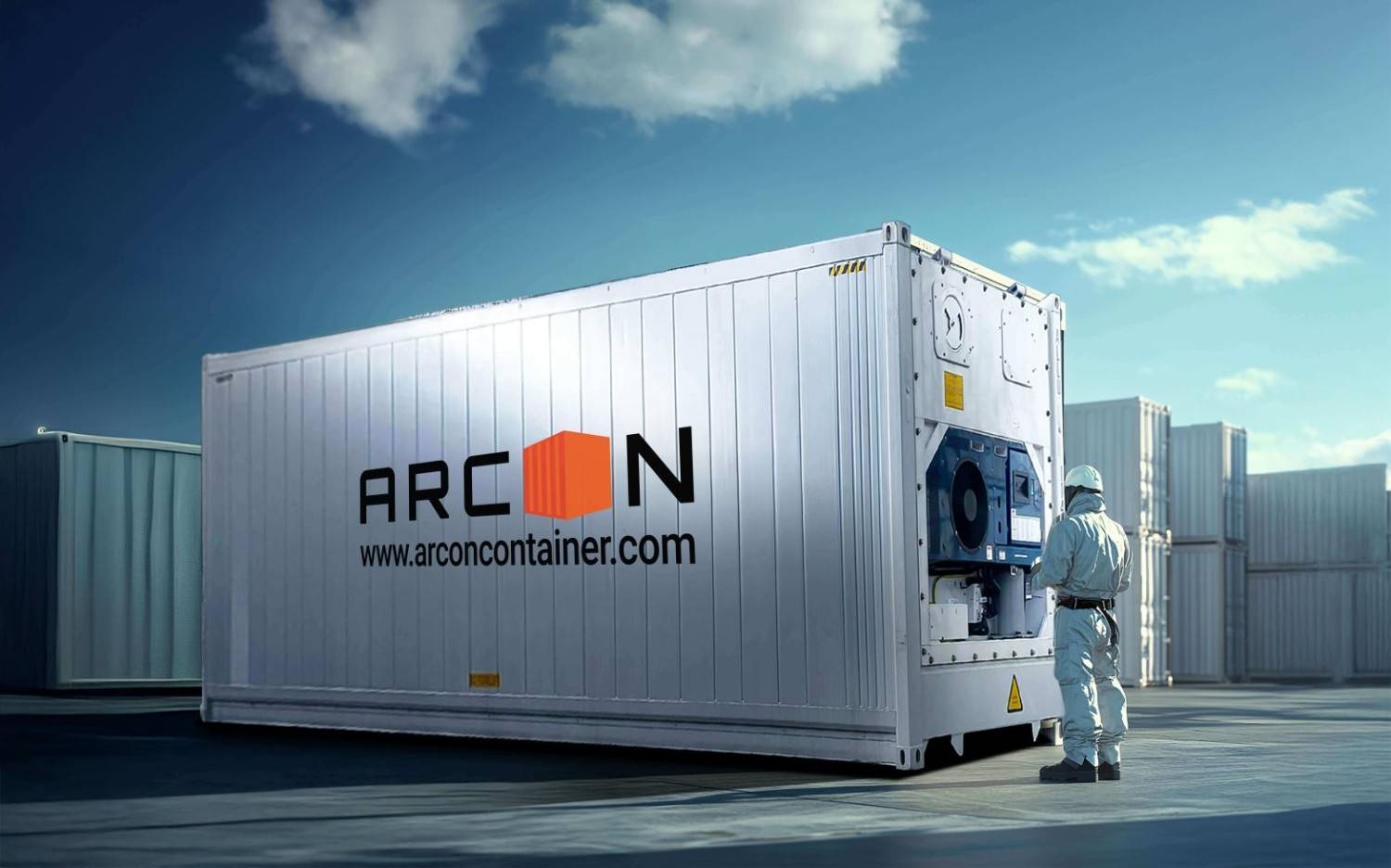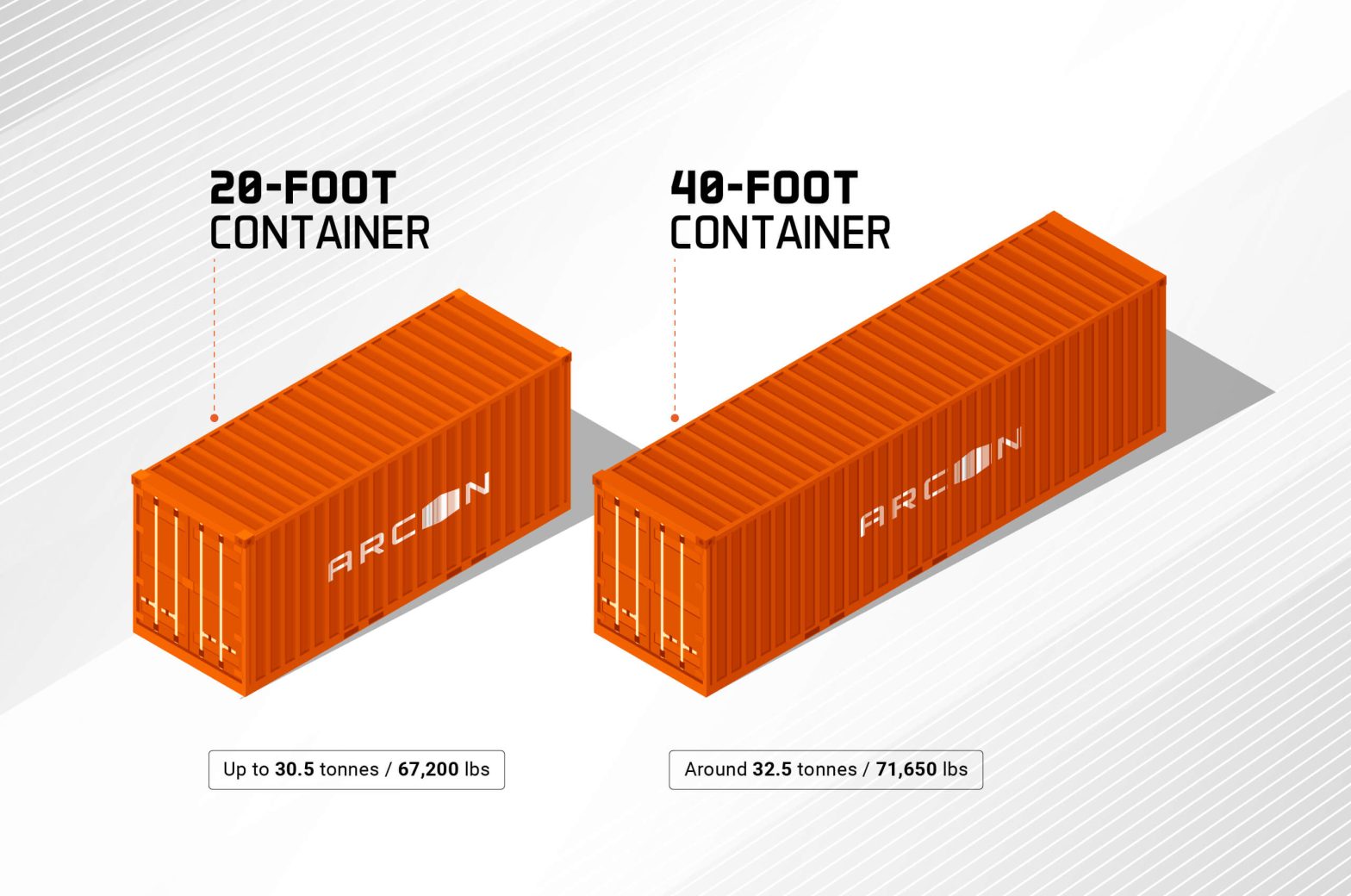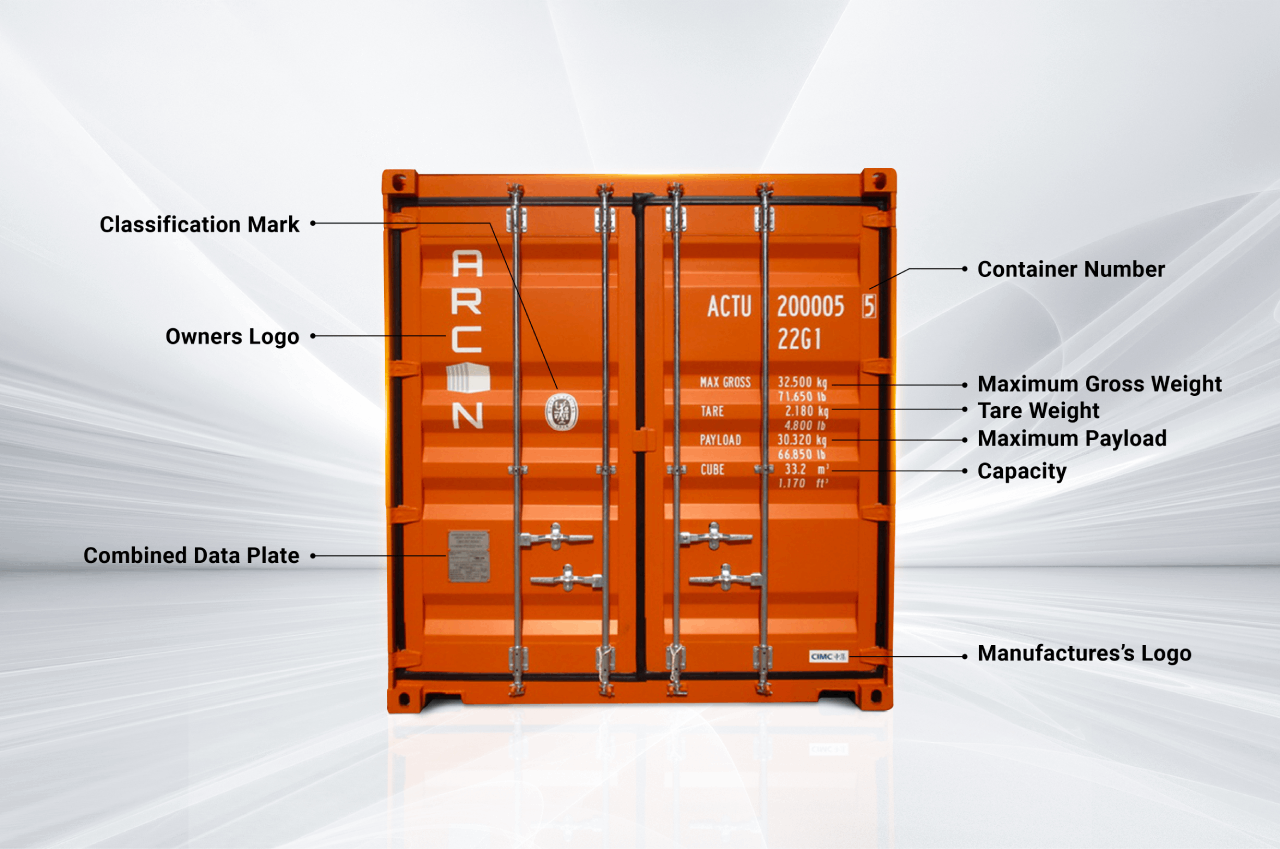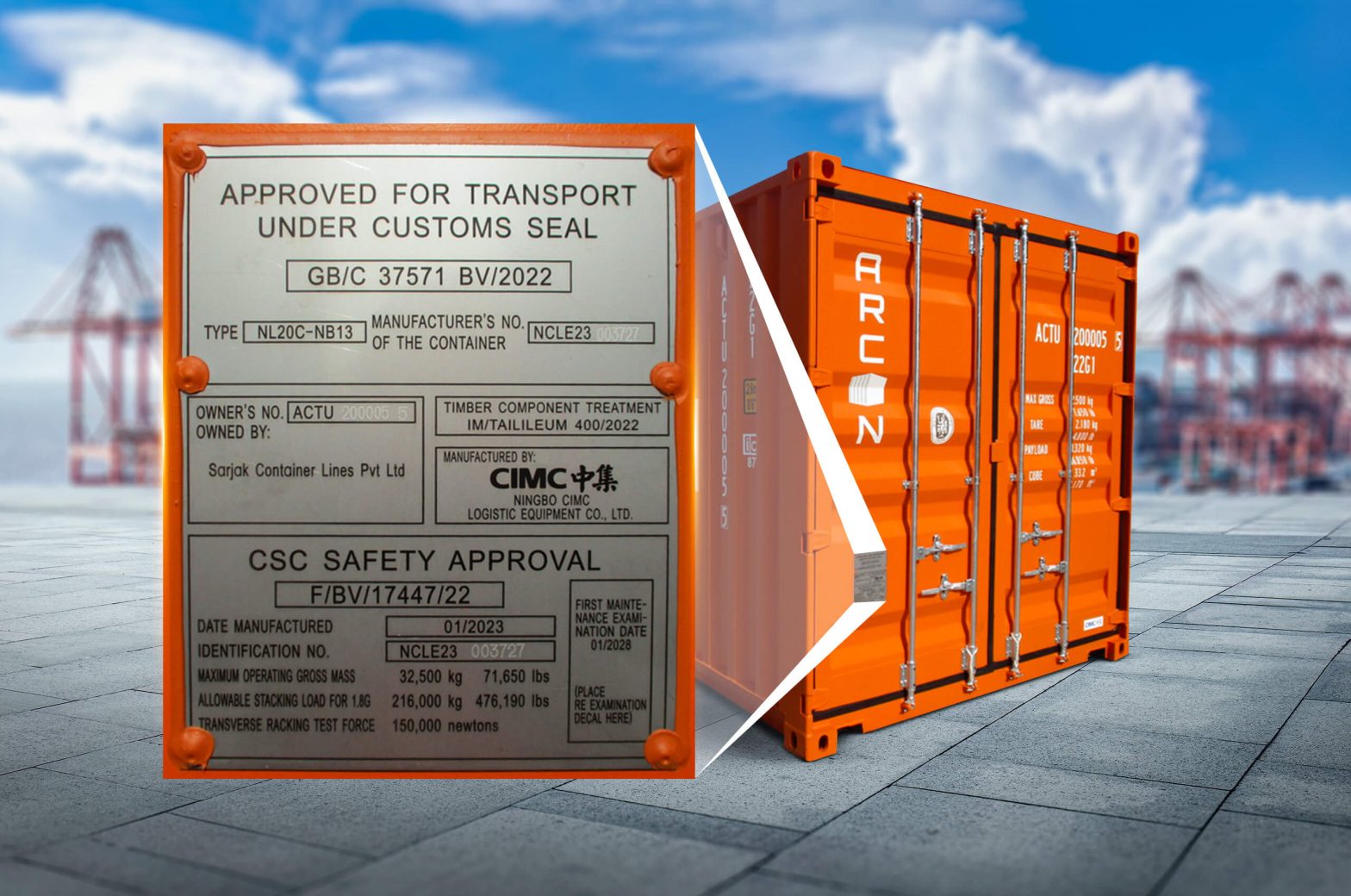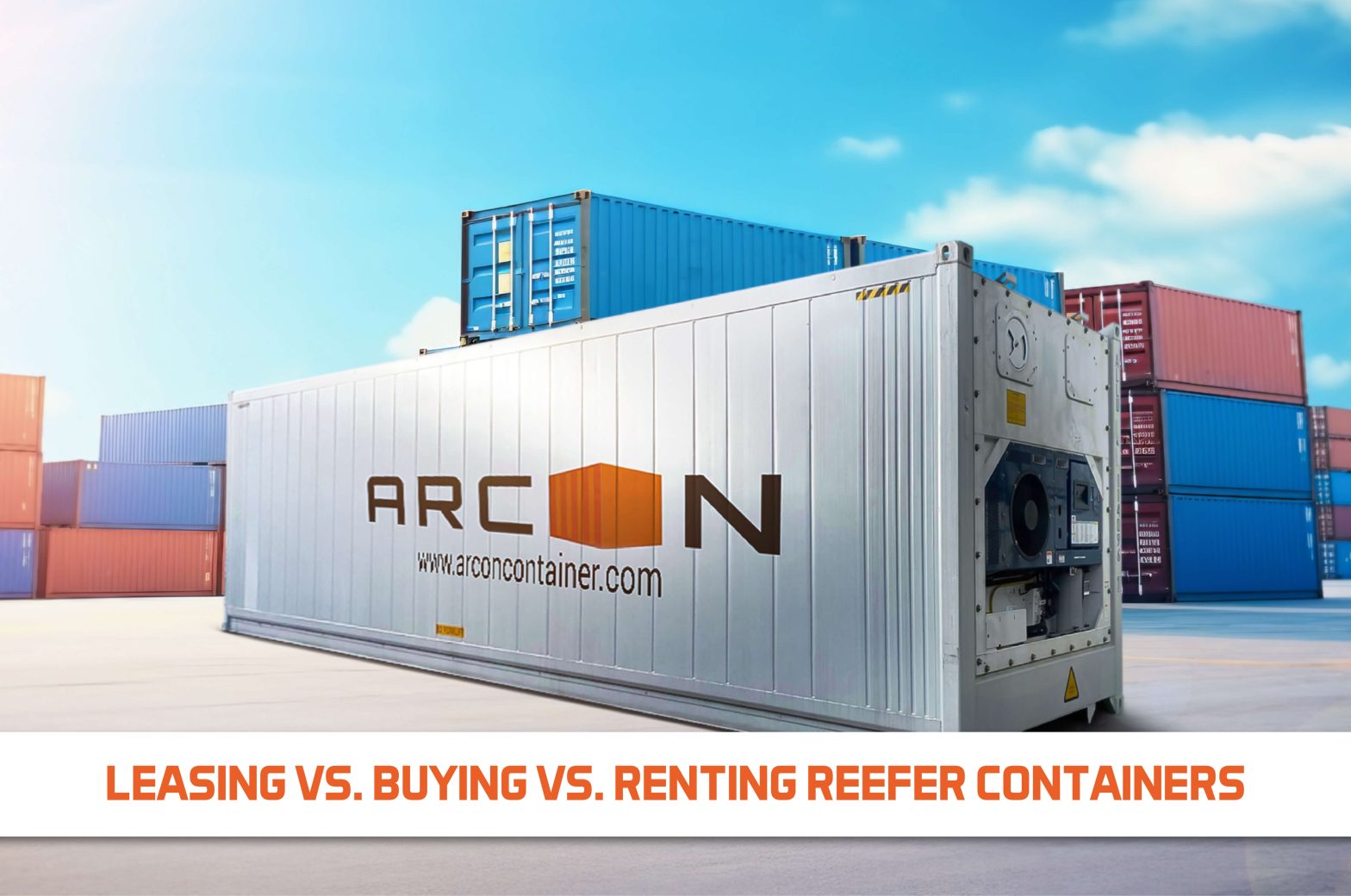Reefer containers, or refrigerated containers, are essential for transporting temperature-sensitive goods across the globe. From perishable foods to pharmaceuticals, reefer containers help ensure that products maintain their quality throughout transit.
However, handling these containers comes with unique safety considerations that must be carefully followed to prevent accidents, protect workers, and maintain product integrity. This article discusses various aspects of crucial refrigerator container safety measures.
Understanding Reefer Container Safety
Handling reefer containers requires a thorough understanding of their operation, including the potential hazards associated with them. Unlike standard containers, reefers have refrigeration units that involve electrical components, temperature control systems, and, in some cases, hazardous refrigerants.
Proper training and adherence to safety protocols are essential for all personnel involved in the handling and operation of these containers to mitigate risks such as electrical hazards, exposure to harmful substances, or temperature-related injuries.
Proper Reefer Container Handling Techniques
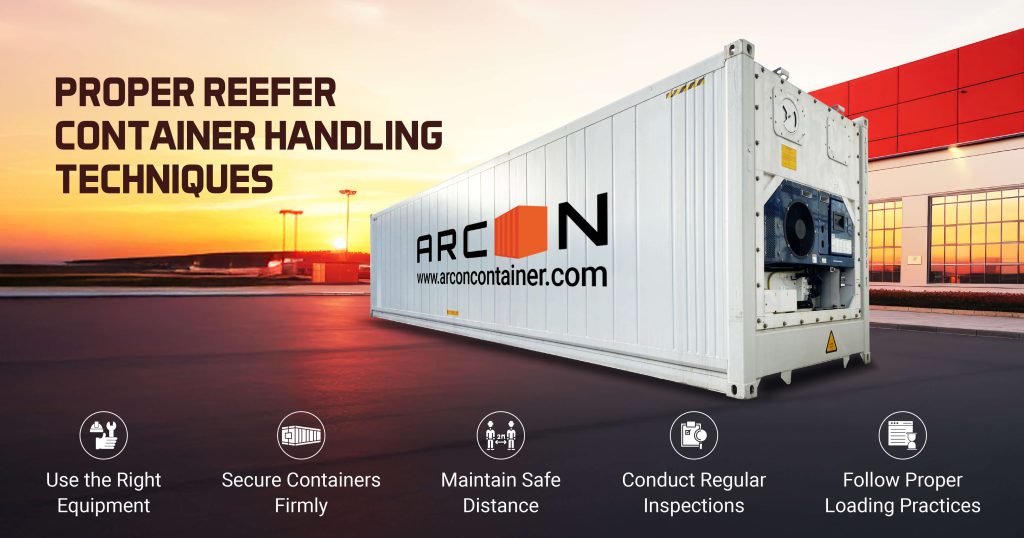
Proper handling of reefer containers is essential for ensuring safety and maintaining the quality of the goods they transport. Following best practices helps prevent accidents, reduces the risk of damage to the container and its cargo, and ensures the safety of all personnel involved. Here are key techniques for safe reefer container handling:
- Use the Right Equipment : Always use machinery specifically designed for lifting and moving reefer containers, such as forklifts and cranes with appropriate attachments.
- Secure Containers Firmly : Ensure containers are securely fastened when loaded onto vehicles or ships to prevent movement during transit.
- Maintain Safe Distances : Keep a safe distance from the operating refrigeration unit to avoid contact with moving parts and potential injury.
- Conduct Regular Inspections : Perform visual checks before and after handling to spot any damage or issues that could impact container safety.
- Follow Proper Loading Practices : Distribute weight evenly inside the container to avoid imbalances that could lead to shifting or tipping during handling.
Temperature and Refrigeration Unit Safety
Temperature control is crucial for maintaining the quality of products stored in reefer containers. However, it also presents safety challenges:
- Monitor Settings Closely : Ensure that the temperature and other settings on the refrigeration unit are programmed correctly based on the type of goods being transported.
- Avoid Direct Contact : The refrigeration unit can reach extremely cold or hot temperatures; avoid direct contact to prevent burns or frostbite.
- Prevent Blockages : Check for and remove any obstructions that may block the airflow within the container, which could compromise cooling efficiency and product safety.
Electrical Safety Precautions for Reefer Containers
Electrical safety is paramount when dealing with reefer containers, as they are powered by complex electrical systems:
- Certified Professionals Only : Only trained and certified professionals should handle the electrical components of reefer containers.
- Disconnect Power : Before performing maintenance or inspections, ensure that the refrigeration unit is disconnected from the power source.
- Check for Damagen : Inspect all electrical cords and connections regularly for fraying, cracks, or other signs of wear that could result in electrical shock or fire.
- Use Grounded Power Sources : Ensure that the reefer container is connected to a grounded power source to prevent electrical hazards.
Emergency Response and Safety Protocols
Preparation for emergencies is critical to ensure that any incidents involving reefer containers are managed effectively:
- Establish Clear Protocols : Develop and communicate emergency response protocols for various scenarios, such as refrigeration unit failure, electrical accidents, or leaks.
- Training and Drills : Conduct regular safety drills and training sessions for staff to ensure they know how to respond quickly and efficiently to emergencies.
- Protective Gear : Ensure that workers handling reefer containers are equipped with the necessary protective gear, such as insulated gloves and safety glasses, to minimise injury risks during emergency situations.
- Emergency Shutdown : Familiarise all relevant personnel with the procedures for emergency shutdowns of refrigeration units to prevent escalation in case of malfunction.
To Sum Up
Reefer containers play a vital role in transporting temperature-sensitive goods safely, but they come with inherent risks that require meticulous handling and adherence to safety protocols. By understanding the reefer container precautions, companies can safeguard their workers and ensure the integrity of their goods. Prioritising safety in reefer container operations not only protects personnel but also upholds operational efficiency and product quality.
At ARCON Container, we provide advanced temperature-control refrigerator shipping containers to ensure your products stay fresh and safe throughout their journey. We offer a real-time temperature monitoring and tracking system, giving you peace of mind with every shipment. With a global reach and flexible lease options, we empower you to confidently ship perishable items to your desired destination in a cost-effective manner.


